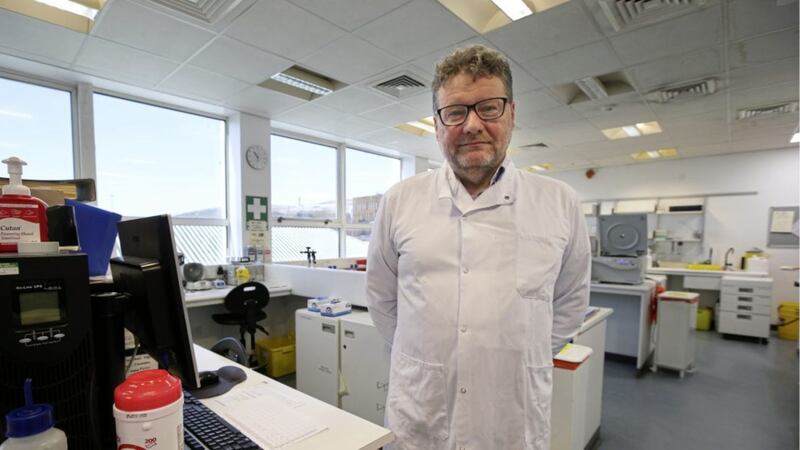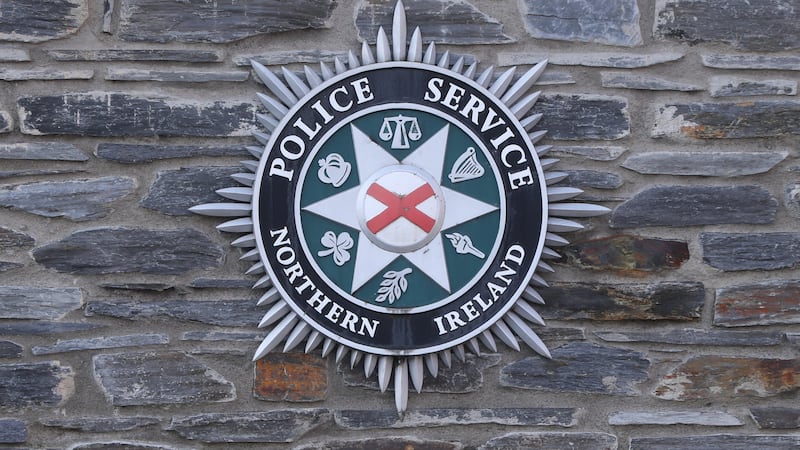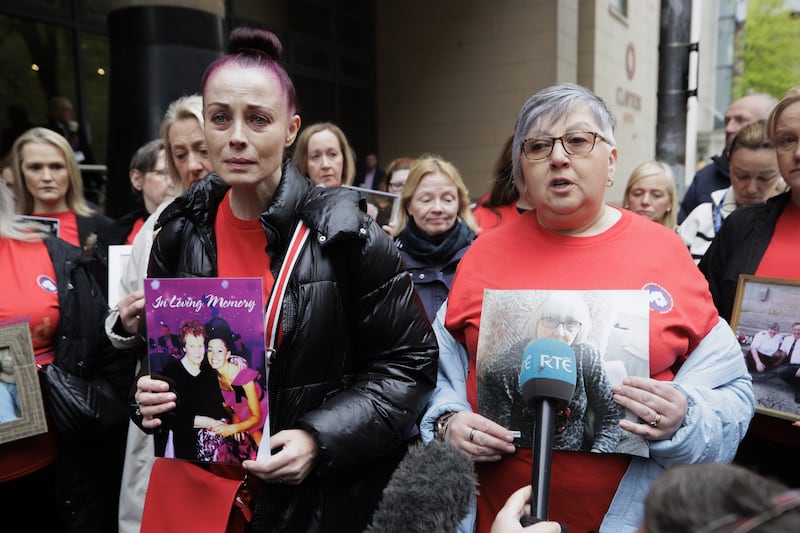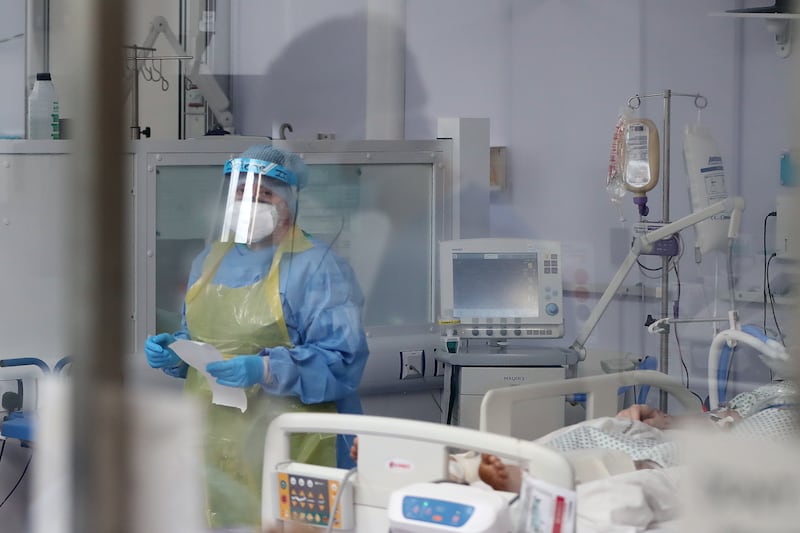IN a career spanning almost 30 years, leading virologist Dr Conall McCaughey says "there has been nothing like this".
Taking us on a tour of the north's only laboratory which tests for coronavirus, the Belfast-based consultant also revealed he and his team are "surge planning" to prepare for hundreds of suspected cases each day.
Based at the Royal Victoria Hospital in Belfast, Dr McCaughey confirmed a big increase in the number of samples being assessed since last week, when a woman became the first person to test positive in north for the virus - with more than 40 tests on Tuesday alone.
He said they are aiming to train more staff and invest in equipment but admitted that "capacity" will be an issue.
"At the moment, our total capacity is for 90 samples a day to test for coronavirus - we're doing less than that. We have surge planning in place if it goes up dramatically so in a few weeks time we get to the point that we're at the hundreds. We've new equipment and we'll have to try to spread the people we have more thinly during the day," Dr McCaughey told The Irish News.
"Thinking ahead to the autumn, we'll be getting more people in who will be very useful - but at the moment it's very hard to train people in the middle of this."
Two more adults in Northern Ireland were announced as "presumptive positive" yesterday evening with a further four in the west of Ireland.
Dr McCaughey said qualifying as a virologist in the early 1990s, he can think of no other virus to compare with Covid-19 in terms of the speed of which the virus was identified - and its global outbreak.
Coronavirus: What are my rights when it comes to working from home?
"In my career, there's been nothing like this. I'm sitting up in Strabane on New Year's Day and I saw the Reuters report that the Chinese had contacted the World Health Organisation (WHO) and I tweeted saying - 'I'm going to keep an eye on this for the next couple of days'," he said.
"Little did I know that it would be dominating everything and that 11 days later a full viral sequence had been identified. It's absolutely extraordinary that humans were able to identify this.
"To characterise it this way, 10 years ago it would have taken months to do. From that, it was only four weeks later that we were doing tests in Belfast. There's now multiples labs in multiple countries - I've never seen anything like that.
"With SARS in 2003, we were as a species not anywhere as good. This virus is very similar to SARS but it did not not spread as well, we actually put the genie back in the bottle. There were 8,000 cases. With this there are now about 94,000 cases."
The consultant virologist, who works with a team of bio-medical scientists and virologists, also revealed they are continuing to monitor the first person who tested positive to learn more about recovery.
"There is a protocol where we do lots and lots of testing on that positive case to look at the rate of loss of the virus. We want to make sure that they are clearing the virus," he said.
"This is happening with positive cases across the UK. We want to see how quickly they lose the virus from faeces, urine, and so we keep assessing the case.
"All of the data will be collated from all the patients - it can inform when the person is considered non-infectious."
The Regional Virus Laboratory at the RVH was chosen as one of the UK's main 12 testing facilities last month.
It takes four hours to get a "presumptive result" at the Belfast laboratory but a sample must be flown by plane - using a specialist courier - and delivered to a laboratory in London for confirmation.
The testing is carried out in 'batches' at the Belfast site, at 9am and then 2pm.
Within a short time of the the first "presumptive test" last Thursday at lunchtime, the north's top public health authorities were immediately notified.
He insisted staff will try to "keep everything going" while testing for other viruses.
"We're looking at what we can do less frequently. We do have a surge plan that is being continually revised.
"It is very important to have some sort of plan that you can vary. Most of these people who get it will be well. Most of them will be at home, in self isolation but there could be a situation where they have been in a public environment and there may be public health actions that need to be taken quite quickly."








